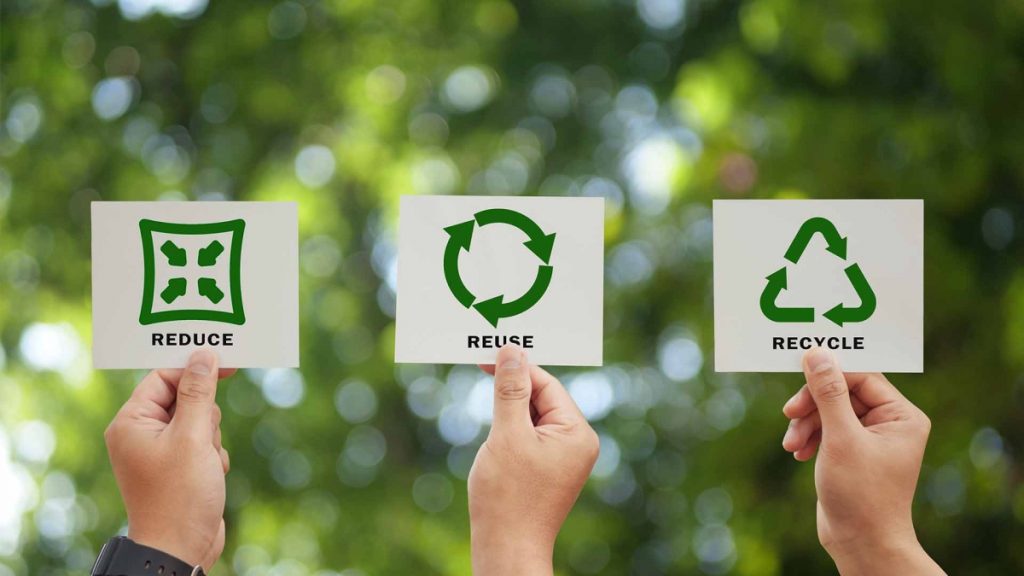In recent years, the importance of sustainable living has grown exponentially as individuals, communities, and nations confront environmental challenges such as climate change, pollution, and resource depletion. Sustainable living is the practice of reducing your ecological footprint by making mindful choices that protect the environment, promote social well-being, and encourage long-term economic stability. For beginners, the idea may seem overwhelming, but even small, consistent actions can make a significant difference. Here are some practical sustainable living tips to help beginners get started.
1. Reduce, Reuse, Recycle

The classic mantra of sustainability—reduce, reuse, recycle—remains the foundation of eco-friendly living. Start by reducing your consumption: think carefully before purchasing new items and ask yourself whether they are truly necessary. Reuse products whenever possible, whether it’s repurposing glass jars as storage containers or donating clothes you no longer wear. Recycling should be the last step, applied to items that cannot be reused. Educate yourself about your local recycling guidelines to ensure materials are processed correctly, as improper recycling can be more harmful than helpful.
2. Conserve Energy
Energy conservation is one of the simplest ways to live sustainably. Begin by switching to energy-efficient LED bulbs, which consume less power and last longer than traditional bulbs. Unplug devices when they are not in use, as many electronics draw “phantom” energy even when turned off. For beginners ready to take a bigger step, consider installing a smart thermostat to optimize heating and cooling, reducing energy waste while lowering utility bills. Embracing renewable energy sources like solar panels, where feasible, is another effective way to minimize your environmental footprint.
3. Mindful Water Usage
Freshwater is a precious resource, and conserving it is vital for sustainability. Simple measures can make a big difference. Fix leaking taps, use water-efficient appliances, and collect rainwater for gardening. Opt for shorter showers and turn off the tap while brushing your teeth. Even small actions, when multiplied across households and communities, can significantly reduce water waste and preserve this essential resource for future generations.
4. Sustainable Food Choices

Food production has a substantial impact on the environment, so making conscious dietary choices is another key aspect of sustainable living. Start by reducing food waste—plan meals ahead, store food properly, and use leftovers creatively. Eating locally produced and seasonal foods lowers your carbon footprint, as transportation and storage emissions are minimized. Incorporating more plant-based meals into your diet can also reduce greenhouse gas emissions associated with meat production. For beginners, even dedicating a few meals per week to plant-based options can make a meaningful difference.
5. Eco-Friendly Transportation
Transportation is a major contributor to carbon emissions, but there are several beginner-friendly ways to travel more sustainably. Walk or bike for short trips instead of using a car. If public transportation is available, take advantage of buses, trains, or subways to reduce individual carbon output. For those who drive, consider carpooling, maintaining your vehicle for optimal fuel efficiency, or investing in an electric or hybrid car if possible. Even small changes in your daily commute can collectively reduce your environmental impact.
6. Mindful Consumption and Minimalism

Adopting a minimalist mindset can help beginners live more sustainably. Focus on purchasing high-quality, durable items rather than cheap, disposable alternatives. This not only reduces waste but also encourages a more intentional lifestyle. Before buying something new, ask whether it aligns with your needs and values. By prioritizing quality over quantity, you can minimize clutter and consumption, benefiting both the planet and your well-being.
7. Sustainable Home Practices
Your home offers numerous opportunities to embrace sustainability. Start by using eco-friendly cleaning products that do not contain harmful chemicals. Compost organic waste to reduce landfill contributions and create nutrient-rich soil for gardening. Indoor plants can improve air quality while enhancing your living space. Consider energy-efficient appliances and insulating your home to reduce heating and cooling needs. Making small adjustments around the house can create a more sustainable and comfortable living environment.
8. Educate Yourself and Spread Awareness
Finally, sustainable living is not only about personal habits but also about fostering awareness in your community. Stay informed about environmental issues, sustainability practices, and new innovations. Share your knowledge with family and friends, participate in local environmental initiatives, or support businesses that prioritize sustainability. Collective efforts amplify the impact of individual actions, helping to create a more sustainable world for everyone.
Conclusion
Sustainable living does not require drastic lifestyle changes overnight. By starting small and gradually incorporating eco-friendly habits into your daily routine, you can reduce your environmental footprint while promoting a healthier, more responsible way of living. From conserving energy and water to making mindful food and consumption choices, every step counts. As beginners, the key is consistency and awareness—small actions today can lead to a substantial positive impact on the planet tomorrow. Sustainable living is not just a personal choice; it is a commitment to a better future for generations to come.

